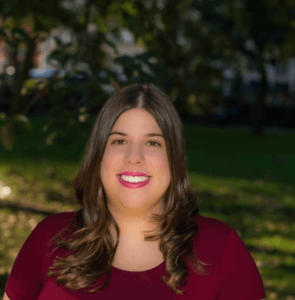What is interpersonal effectiveness and how does it impact your relationships?
The interpersonal effectiveness model in DBT is all about learning to balance priorities & demands; the wants & the shoulds in your life.
This can be a huge help in attending to and maintaining relationships in your life! Learning to balance the wants and needs helps you define your own boundaries, keep enough time to recharge & relax, and learn to better manage your priorities. All of this can take stress & strain off of your relationships–because when our priorities and boundaries are clearly defined, communication can become more effective and easier to manage.
Think about how you communicate your needs in relationships & how you perceive the needs of others.
How are things balanced right now? Do you know your own priorities and the priorities of your partner and friends? Or are unspoken demands adding strain to your relationship?
Interpersonal effectiveness helps us to better communicate within the significant relationships in our lives so that both parties feel heard, safe, and able to come to a productive & satisfying conclusion. Instead of feeling overwhelmed or buried under implied demands, interpersonal effectiveness helps us identify what we need to communicate, how we should communicate it & how we can be open to honest communication from others.
Take a few moments to think of how you usually handle conflicts in relationships. Do you talk it out? Lash out? Do you turn inward? Did you feel out of control? Scared? Anxious? Now imagine that you had a solid practice to help you understand and work through what it was you were feeling, and helped you communicate it to your partners or friends.
Interpersonal effectiveness at its core is about cultivating & managing effective communication with others. This means it helps us:
- Attend to our relationships
- Define priorities vs. demands & balance them
- Define our “wants” vs. our “shoulds” & balance them
There are two main parts to the communication model within interpersonal effectiveness and they are:
- Learning how to ask for what you want or need
- Learning to say no and set appropriate boundaries
So how can you start to practice the skills outlined in the interpersonal effectiveness communication model?
When approaching communication in your relationships, remember the acronym GIVE:
- G – GENTLE. Be gentle. When you’re expressing your needs, wants or concerns, be gentle with them. Try to avoid hostility or defensiveness. This will help the person you’re talking to feel comfortable respond honestly.
- I – INTEREST. Show interest. When the person you’re talking to is speaking, don’t interrupt them. Let them say what they need to say & show interest while they are saying it so that they know they are valued.
- V – VALIDATE. When the person you’re talking to is expressing their feelings, validate them. Let them know they’re heard. Acknowledge what they’re feeling, and let them know you respect their feelings.
- E – EASY. Keep it easy & lighthearted. When you go in with attack-mode on, the conversation stops being productive. Keeping an easy and open attitude helps keep the conversation open and flowing.
“Communication is a skill that you can learn. It’s like riding a bicycle or typing. If you’re willing to work at it, you can rapidly improve the quality of every part of your life.” – Brian Tracy

Alyssa Mairanz, LMHC, DBTC
Alyssa Mairanz provides counseling and therapy services for life transitions, relationship issues, self esteem, depression, anxiety, and DBT and Psychodynamic therapy in a NYC group practice in the Flatiron District near Madison Square Park. She also serves the Village, Chelsea, Union Square, the Financial District and the surrounding areas.
Empower Your Mind Therapy’s mission is to helps our clients build the life they want and find more happiness and satisfaction.



